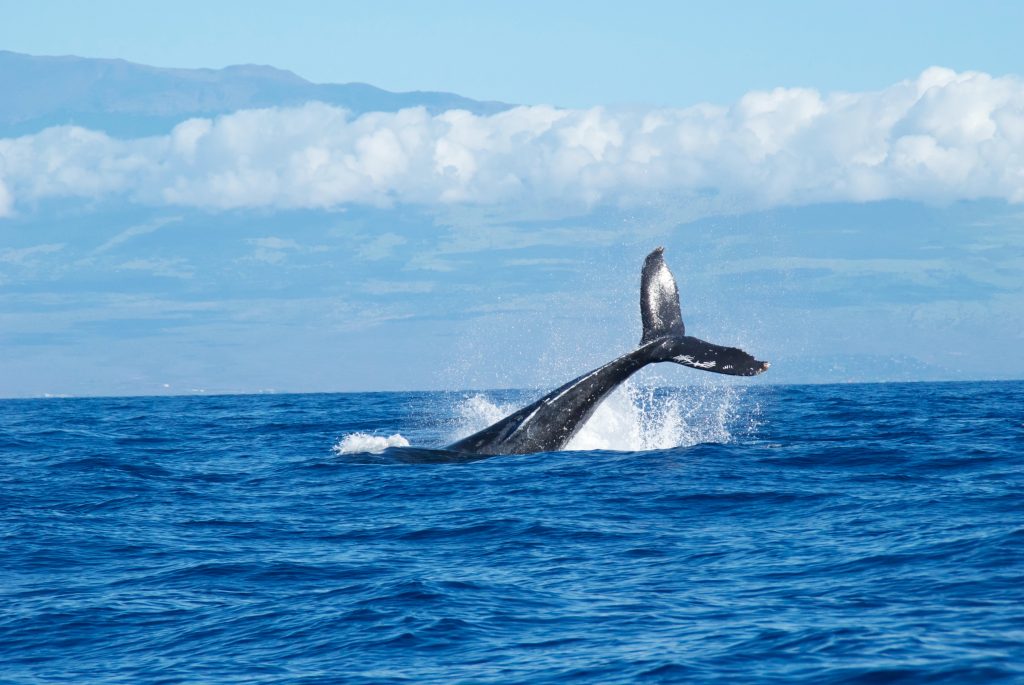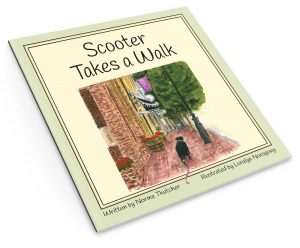
Photo courtesy of Abigail Lynn on Unsplash
The woman next to me on the whale watching tour had three cameras of various sizes strung around her neck. It was as though she was wearing the world’s most cumbersome necklace, part of which was digging into my side.
When the whales appeared she raised one camera after the other taking shot after shot after shot. She never actually looked at the whales; she simply snapped photos.
After an hour of this, I gently asked her, “Don’t you want to see the whales for yourself?” She lowered the camera and gave me a look of incredulity as if I had just said, “Did you know I’m a unicorn?”
“No,” she replied. “I can always look at my photos.”
A research study by Linda Henkel in 2014 offered that the more photos we take of an event or of objects (such as paintings in a museum), the less likely we are to remember the actual event or paintings. Our brains say, “Relax…I’ve got this covered. You don’t actually need to make a memory here since I will remember that there are photos stored on your camera.”
Henkel’s study suggested that the effort spent on taking an excessive amount of photos has a detrimental effect on how we make our memories.
A blog post by Robert Chen of Embrace Possibility reinforced this very message. He told of a vacation trip where he was his family’s designated photographer. A lightning bolt of understanding hit him as he was focusing on capturing just the right moment as he was sitting on top of an elephant. He found himself asking, “If I don’t experience this moment because I’m busy taking the picture, exactly what memory will the picture bring me in the future?”
Compare the time before digital cameras to now. We used to take photographs to remember people and places and special times. Now, as we snap a shot of the terrific meal our waiter just delivered so we can post it on Instagram or Snapchat, we’re often using our photos as a means of communication instead of memory.
Excessive documentation of our lives via photo posting/sharing may cause us to feel as though we’re narrating our own lives in the third person. And research shows that as a third person, we have less emotional connection to the memory.
I’m as guilty of “too many photos” as the next person. Don’t think I’m pointing fingers. It becomes a bad habit. With our phones, it’s so easy to take just one more.
The best advice I found is this: Smash your smartphone to bits and buy a non-camera flip phone.
Not really. It’s this: Enjoy the real life in front of you with all your senses, including your eyes. Of course, take a few pictures. Just don’t be like the whale watcher, having only her photos and no real memories of those glorious humpback whales bursting up from the water for just an instant.
~~~~~~~~~~~~~
An explanation (for those who need it) of what a “Kodak moment” meant and what it means today.




This is great insight Norma. I’m hardly in any family photos because I’m always the one taking pictures…. it makes it almost like a part time job every time I’m wanting to be in the moment; and also capture the event. I’m going to have to delegate that we all take turns. ( I take bad pictures anyway, I’ve even known to the phone upside down when I don’t have my glasses close by:)
When I was working on scrapbooks of my son Tim as gifts for others, I noticed that there weren’t a lot of photos of me with him because I was the “mom” and so was the one behind the camera. But then I decided to look at it this way: I was the one he was smiling at.
Thank you, Norma! I am usually the designated photographer in our family. I just took 383 photos on our family vacation with the grandkids!
Trying to select just my favorites for a photo album is my hobby. I actually am in a few when my husband and daughter-in-law took over! It was our 40 th Wedding Anniversary and their 10th we were celebrating, and I actually did experience all that I photographed with both a waterproof camera and my phone. Got a couple relaxing and fun videos as well!
I think I do remember that you enjoy photography. And selecting what goes in the album is a daunting experience for me, and yet you enjoy it! Isn’t it wonderful for us to admire our differences instead of being upset over them? Thanks for sharing.
Norma, my “flip phone” actually has a good camera, but I take the “keep forever” photos on my digital camera. I went whale watching in 1996 – and you’re right – I got so engrossed in watching the whales that I’m sure I missed some great shots. Oh well, I have those stored elsewhere!
Congratulations on your 40th approved comment! I appreciate your unwavering support of my writing. And I still wish you’d buy a new phone.
In New Zealand with my daughter, I felt I needed to capture as much beauty of the South island as I could. She finally said to me, “Mom, put your camera down and just enjoy the views. You’re missing too much”. She was right! I have just enough photos to remind me of that beautiful country, but the real memories are stored safely in my own mind.
Yes! This is just what I was trying to convey. Not that we shouldn’t take any photos, please…take photos. But not too many that they get in our way of experiencing the moment for real. This was Kate, right? Pat her on the head for me.
Just maybe Norma she was a professional photographer on assignment.
Nope. She actually talked aloud about herself to anyone within earshot.
I am wondering how we would feel if the Earth was hit by some unknown air wave that would wipe all of our electronics’ memories. A global whiteout! Oh boy, oh boy!
Do you recall the 1975 movie Rollerball? Ironically, the movie was set in the year 2018! Anyhow, think about 1975 and how little “technology” there was. In the movie, it’s as if a mysterious third person follows the main character and his wife? girlfriend? on dates to videotape them–just the best highlights (similar to today’s Facebook!). When she eventually leaves him and he’s been sitting around watching their formerly happy life for hours, his finger hovers over the “erase” button. He finally pushes it. Boom! Gone.
The movie was actually violent and action-packed, but provided a lot of thought-provoking moments. I wonder what it means that the above scene is the one I remember most?